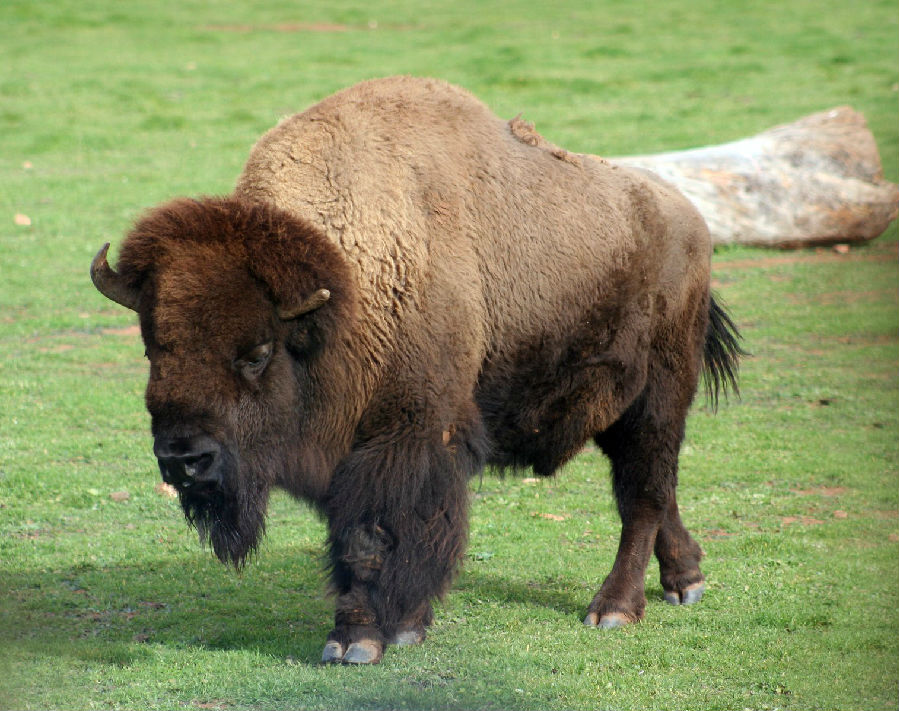(单词翻译:单击)
听力文本
In summer, bison roamed freely, almost continuously cropping the abundant green grass.
夏季,美洲野牛四处漫步,享用着取之不尽的大片青草。
Now, that grass is not only withered and frozen, it's about to be buried.
现在青草不仅枯萎结冰,马上还会被大雪掩埋。
Sixty million tons of snow now blanket this herd's territory.
六千万吨的积雪覆盖在野牛群的领地上。
Pushing through deep snow is exhausting work, and the bison are now slowly starving.
在厚厚的积雪中行动非常耗费体力,美洲野牛越来越饥饿。
Just keeping warm saps huge amounts of energy.
仅仅保暖都需要耗费大量的能量。

Their thick coats can insulate them down to minus 20 Fahrenheit. It's now minus 40.
他们厚重的皮毛可耐受零下30度的低温。现在是零下40度。
The only thing that will keep them alive is buried beneath three feet of snow.
唯一能让他们活下去的食物被深埋在一米深的积雪之下。
And that's a problem shared with a surprising neighbour.
他们意想不到的邻居也面临着同样的问题。
The food the fox seeks is also deep beneath the snow.
狐狸在搜寻的食物也被深埋在积雪之下。
The survival of both creatures depends on getting through to the ground.
这两种生物能否生存下去,取决于能否挖到地面的食物。
视频及简介
草原覆盖了所有土地的四分之一,支持着野生动物的大量聚集,但为了在这里生存,动物必须忍受地球上最恶劣的季节性变化。从亚洲怪异的西贡羚羊,到巴西的巨型食肉动物,草原动物已经以不同寻常的方式适应了这些极端。在被洪水淹没的奥卡万戈,狮子在史诗般的战斗中,在大草原上捕食一头令人生畏的水牛,捕食者利用大象来帮助捕捉昆虫,在寒冷的北部苔原上,驯鹿开始在饥饿的北极狼的阴影下进行大迁徙。


